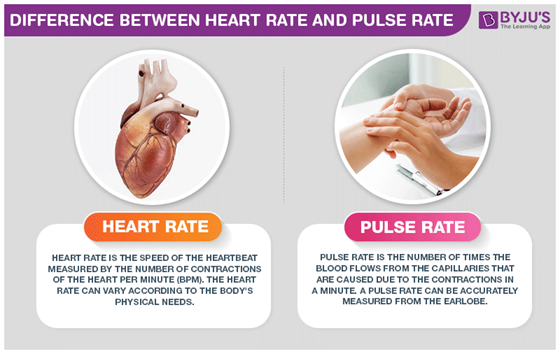Essentially, Heart rate and Pulse rate tells you the same information. That is, how fast the human heart beats in the span of a minute. The only difference between Heart Rate and Pulse Rate is that your pulse can be measured from other places on your body such as:
- Your wrists
- The side of your neck
- The inside of your elbow
- And even the top of the foot.
What is Pulse rate and Heart rate ?
A Pulse rate is generally defined as the number of heartbeats per minute. The resting pulse rate for an average adult ranges between 60 and 80 beats per minute. The speed at which the human heart beats is termed as the heart rate.

To get an accurate reading, place your finger on an artery and count the pulses upto 60 seconds. Generally, a lower pulse or a heartbeat indicates that a person is physically fit and the heart muscles are in a good condition. This implies that the heart doesn’t need to beat fast and hard to maintain body functions. Of course, this is not always the case, as there are medications which reduce the rate of heart beat to control various health heart diseases such as irregular heart beats, high blood pressure and angina (chest pain).
For instance, the heartbeat of an average individual range from 60 to a 100 beats per minute at resting. An unhealthy individual, or an obese individual may have a heartbeat just under 100 at resting, and a well trained athlete will have a resting heartbeat close to 40.
Summary
- A heart rate is the number of times your heart beats in the span of a minute.
- A pulse rate is the number of times your arteries create a noticeable “pulse” due to increase in blood pressure as a result of your heart contracting.
- Therefore,the pulse rate is essentially your heart rate.
Stay tuned with BYJU’S to know more in detail about the differences between Heart Rate and Pulse Rate.

Comments